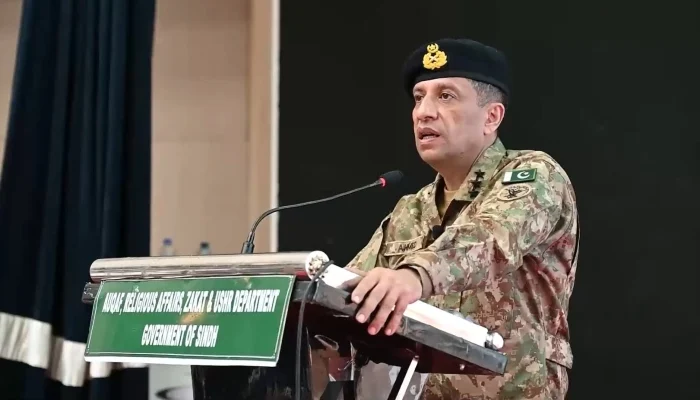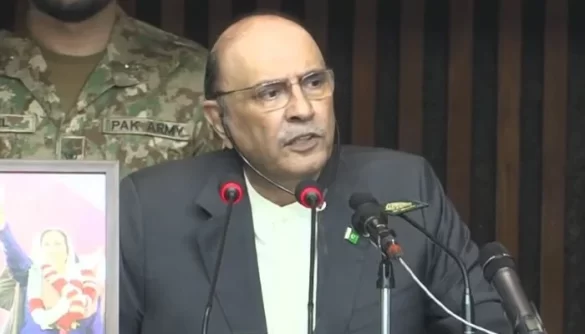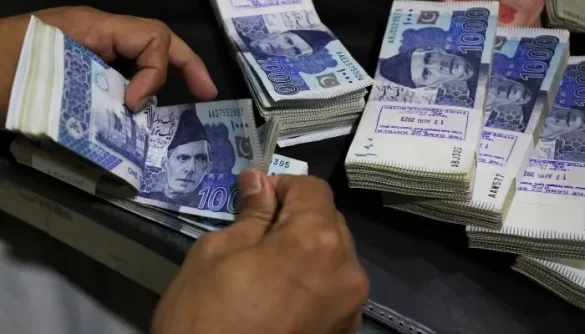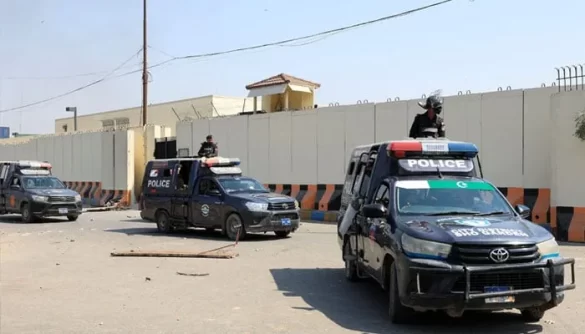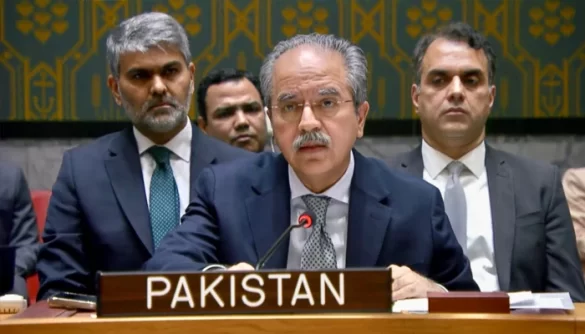Background to the May 9 Incident
Pakistan’s military has reiterated that all those responsible for the violence and unrest on May 9, 2023, will be held accountable under the law. The date has become a highly sensitive marker in Pakistan’s political and security landscape.
On that day, violent protests erupted across the country following the arrest of former Prime Minister Imran Khan. Recently, Pakistan’s Supreme Court granted bail to Imran Khan in connection with the May 9 riots cases, read more here the chairman of the Pakistan Tehreek-e-Insaf (PTI). Demonstrators attacked government buildings, military installations, and memorials dedicated to soldiers. In Lahore, parts of the historic Corps Commander House were set on fire. Nationwide, several people were killed, and hundreds were injured in clashes between protesters and security forces.
The military has since described the events as an unprecedented attack on the state, accusing PTI supporters of crossing “red lines” by targeting the armed forces. Thousands were detained in the aftermath, with many still facing trial in civilian and military courts.
Army’s Position on Accountability
Speaking to reporters in Islamabad, the Director General of Inter-Services Public Relations (DG ISPR), Lieutenant General Ahmed Sharif, stressed that those involved in planning, facilitating, or executing the violence would face justice.
“May 9 is not just a case for the Pakistan Army; it is a case for the entire nation,” he said. “Those responsible will be brought to justice in accordance with the law.”
General Sharif dismissed suggestions that the military was pursuing a political agenda. Instead, he underlined that accountability was a legal necessity. “The planners, facilitators, and perpetrators of May 9 must answer before the law,” he emphasized.
Clarification on Brussels Speech
The DG ISPR also addressed media reports regarding Army Chief General Asim Munir’s recent speech in Brussels. Some commentators claimed the General had hinted at reconciliation with PTI or offered an apology for the military’s actions.
General Sharif rejected these claims as “misleading and inaccurate.” He explained that the Army Chief’s address in Brussels, attended by hundreds, focused on Pakistan’s security and international cooperation. “There was no mention of PTI or any political reference, nor was there any talk of an apology,” he clarified.
He further noted that during the event, many attendees took photographs with the Army Chief, but the content of the speech remained strictly non-political.
Political and Legal Fallout
The May 9 events continue to cast a shadow over Pakistan’s political landscape. The government of former Prime Minister Shehbaz Sharif labeled the protests as a direct assault on national security. PTI, however, has argued that many of its supporters were unfairly targeted and subjected to mass arrests.
Human rights groups have raised concerns over civilians being tried in military courts, arguing that it undermines fair trial rights. The government and military have defended the trials, citing the severity of the attacks on military sites.
According to official figures, more than 4,000 people were detained following the May 9 unrest, though many were later released. Court cases against several PTI leaders and activists are still ongoing, with verdicts yet to be delivered.
Broader Implications
The episode highlights the fragile balance between politics and the military in Pakistan, where the armed forces have historically played a powerful role in governance. The insistence on accountability reflects the military’s attempt to deter future attacks on state institutions, but critics argue it also risks deepening political polarization.
For now, the message from Pakistan’s military remains firm: May 9 is considered an assault not only on the army but also on the state itself, and accountability will proceed within the legal framework.

